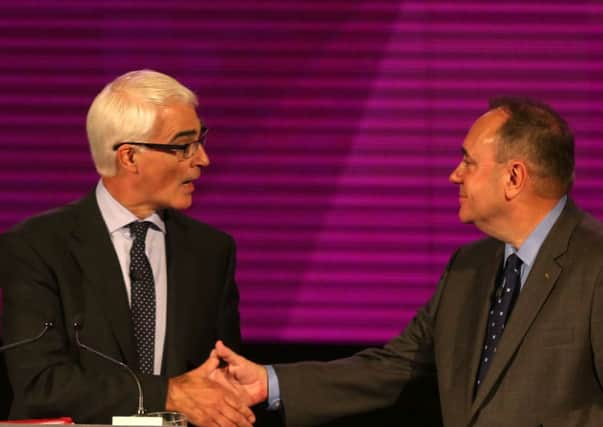Scottish independence: Debate captures world media


Hundreds of media professionals from all around the world have descended on the country in recent days - all with their own reasons for intently watching the Scottish independence debate.
Some feared that a split from the union could spark an independence movement in small countries elsewhere, while other newspapers and broadcasters in the Commonwealth raised unlikely concerns over their constitutional link to the monarchy, if the United Kingdom is broken up.
Advertisement
Hide AdAdvertisement
Hide AdSpanish website Zoomnews worried about the effect Scottish independence would have on Spanish companies, which, it said, “have invested no less than 70,000 million euros in the UK”.
“Legislative changes required by the Scottish secession would have an undeniable impact on their business and on their balance sheets,” it warned.
Romanian daily newspaper Adevarul warned of the “consequences” of Scotland’s split, which it said could lead to other small countries across Europe following suit - and the “dangers” of the “ideology of the new groups” behind the movements.
“Indeed, the consequences could be dramatic and long term,” it wrote. “Attention, this is just the beginning and no one can predict the consequences that would occur if Europe explodes into new little states organised based only on ethnicity.”
Detailed fact gave way to blind inaccuracy, however, when South Korean national broadcaster Arirang News made a faux pas. In a news broadcast on Wednesday - the day that every other media outlet worldwide was reporting widespread criticism of Prime Minister David Cameron for his lack of visibility in the Better Together campaign - the journalist described the Westminster leader as having been “front and centre” of the No side throughout the campaign.
Broadcaster Radio New Zealand said a local academic had claimed that New Zealand should be a model for an independent Scotland. Otago University Professor of Scottish Studies Liam McIlvaney, who has long championed the independence movement, said suggestions Scotland could not go it alone overlooked the fact that many small countries were succeeding.
“As an example of a small country that has, if you like, gradually disengaged from Britishness over a period of decades, I think New Zealand perhaps gives us some indication of what an independent Scotland might look like,” he was quoted as saying.
Advertisement
Hide AdAdvertisement
Hide AdMeanwhile, Western Australia news outlet WA Today quoted a late academic who believed that Australia could be left in an “unconstitutional position” if Scotland leaves the United Kingdom, meaning that a monarch of the UK as it currently stands would not exist.
But the writer said the argument was unlikely to be a risk in reality.
“The relationship between Scotland and Australia would be barely changed by a successful referendum as Scotland would remain part of the Commonwealth owing allegiance to the British Crown.” he said.
US newspaper the Washington Post was more concerned with what the UK would be called if it was, indeed, no longer a United Kingdom.
“If all of Britain is no longer part of the country, then how can it be Great Britain?” it asked. “Would the name have to change? Perhaps.”
In France, in response to an article detailing a range of financial concerns relating to the Scottish referendum on the website of broadsheet newspaper Le Monde, one reader was keen to share his own view. “Is it not right that Scotland’s principal source of income is marriage?” he asked, posting a link to a web page about weddings at Gretna Green.
SEE ALSO: